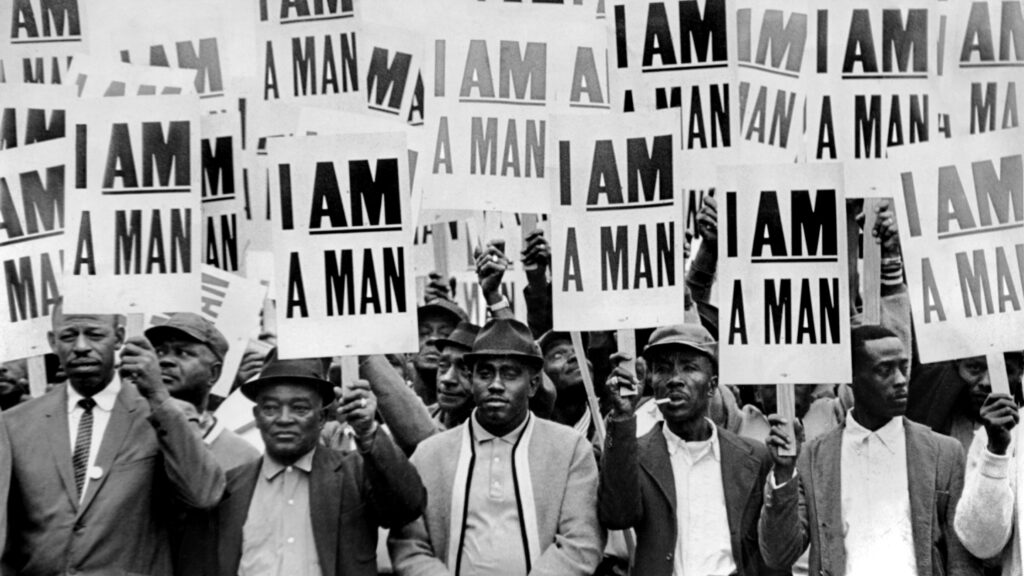Three city employees have been killed on the job in Georgia over the past month and a half. At least 4 this year.
And none of their employers will receive a citation, not a dime in penalties will be paid. No one will know the real causes. And no one cares much.
Because these aren’t real people; they’re just public employees.
- Eric Weems, 52, a lineman working for the city of Griffin, Georgia, was killed on Nov. 13 in some kind of “equipment failure,” and another worker was seriously injured. He leaves behind two children, and just recently became a grandfather. Georgia Governor Brian Kemp asked “Georgians to keep the Griffin linemen, their families, and their loved ones in your thoughts and prayers in these difficult times.”
- James Rayburn, a Rome, Georgia city water employee was crushed to death on December 6 when a trench collapse on top of him. Another worker was injured. a spokesperson for the city of Rome said in a statement. “Our thoughts and deepest condolences are with them as we all mourn together.”
- Sebastian Dykes Jr. was killed in a trench collapse in Albany, GA on December 18 while working on a sewer line. Another worker was injured. The city released a statement assuring the city that “Our thoughts and prayers are with all of those involved” and the Dougherty County Council assured Dykes family “Please know that you are in our hearts and thoughts.”
- Also in Albany, public works employee Darrious Stephens, 36, drowned last February while taking water samples from the river during heavy rainfall. His body was found 20 days after he initially went missing.
But as I wrote after Weems was killed, thoughts and prayers aren’t enough. Public employees like Weems, Rayburn, Dykes and Stephens don’t need prayers. They need safe working conditions. They need strong laws requiring safe working conditions. They need enforcement. And they need harsh penalties for employers who fail to comply with basic workplace safety and health standards.
Are the lives of public employees somehow less valuable than the lives of private sector employees? If you prick them, do they not bleed? If you poison them, do they not die?
Thoughts and prayers aren’t enough. Public employees like Weems, Rayburn, Dykes and Stephens don’t need prayers. They need safe working conditions. They need strong laws requiring safe working conditions. They need enforcement.
Excuse my French, but I’m so fucking sick of writing about this country’s failure to provide public employees with the right to a safe workplace. The right to come home alive and healthy at the end of the workday. The same rights that private sector employees have had for 50 years.
Who’s Listening? Who Cares?
You’d think that after three deaths in just over a month, maybe just a few politicians or legislators in the state of Georgia might wonder why the people who keep their lights on, take care of what they flush down their toilets, fix their potholes, repair their busted water lines, take care of their parks, pick up their garbage, catch bad guys, put out fires and care for their mentally ill — are treated like second class citizens.
You’d think that people who are so pro-life would also be pro the lives of public employees. You’d think that people who are supposedly pro-worker, would be pro ALL workers.
Sure, organizing more public employee unions would help. But another little known fact is that collective bargaining for state, county and municipal employees is not governed by the National Labor Relations Act. It’s governed by whatever laws or executive orders a state is willing to provide. And around half the states — including many states that don’t provide workplace safety protections for public employees, also don’t allow their employees to organize or bargain collectively — even over their health and safety conditions.
Freedom of the Press…To Say Nothing
If you stopped 100 people in the street in Atlanta, I’d bet not than one of them would know that it’s perfectly legal to kill public employees in their state — as long as you do it while they’re working. (I’m not even sure most public employees in Georgia know they’re not covered by OSHA.
The press is somewhat to blame for that. The deaths of Weems and Rayburn got a fair amount of press in Georgia. Only one mentioned that OSHA wouldn’t be investigating. I sent emails to every reporter I could contact who wrote about the deaths, thanking them for their coverage and wondering if they knew that public employees had no right to come home alive at the end of the day? And maybe that would be a good thing to write about.
Out of more than a dozen emails I sent, I received only three responses. After Weems’ death, one reporter said he knew that public employees weren’t covered by OSHA, but wasn’t interested in writing anything more (even after I sent him emails about the subsequent deaths.) Another reporter expressed some interest in the issue after Rayburn’s death, and interviewed a worker advocate which apparently resulted in a story on the evening news.
After Dykes’ death in Rome, a reporter insisted that even if there were no OSHA, the employer can be sued ” in cases of negligence or safety violations.” But, of course, employers can’t really be sued. Workers comp prohibits employees from suing their employers after a worker has been injured (or killed) except in very rare situations (such as intentional negligence). Just neglecting safety rules doesn’t cut it.
Aren’t there any investigative reporters out there who want to do an in-depth investigation that will spark some action?
Anyway, the point is to prevent injuries and deaths, not file lawsuits afterwards.
Aren’t there any investigative reporters out there who want to do an in-depth investigation that will spark some action? I’d put in a good word with the Pulitzer people. I think we need much more than a sentence at the end of a news article or a short evening television story that isn’t even posted on the news outlet’s website (although more of those wouldn’t hurt.)
Internal Investigations?
Albany officials promised an “internal investigation.” But reporters are skeptical, noting that the City of Albany has issued no report on the death of Darrious Stephens ten months ago, and the city has never responded to questions about safety protocols.
City officials in non-OSHA states always promise that they’ll investigate the problem after one of their employees get killed, but either they don’t, or they never release the promised report, or the report just blames the worker without looking into the employer’s possible failure to provide a safe workplace or comply with OSHA standards.
And then, of course, the months go by and everyone just forgets about those promised investigations. Pretty sure that’s the reason God gave us Freedom of Information and Open Records laws.
An Endless Battle
I’ve been working on this issue — investigating cases, reporting on deaths, educating workers and unions, testifying with families, crying with families, organizing Congressional hearings, and working on federal and state legislation — since that day in early November 1982 when I walked into AFSCME — almost exactly 42 years ago. In 1982, there were 27 states that didn’t provide OSHA coverage for public employees. Today, there are 23 states that don’t treat public employees like human beings. Progress? Maybe. But not nearly enough. Not even close.
But don’t cry for me. I don’t have to climb down into a 15 foot deep unprotected trench, or descend into an unmonitored confined space, or work on machinery in dire need of maintenance, or labor all day in the stifling heat without water or shade. I get to just sit at my desk and rant.
Finally, I’m sorry if I hurt anyone’s feelings, but after all this time, after all of the legislation in Congress and in states like Pennsylvania (which has been working on public employee safety legislation since I started at AFSCME), I can only conclude that the problem goes way beyond just ignorance or politics.
The problem is that most people don’t know. And those that do know just don’t care enough to do anything. And that’s pretty damn sad.
Maybe the thing that’s likely to change things is not hearings or lobbying or blog posts, but thousands of public employees and their supporters walking off the job and marching on their state Capitals to demand their lives.
Well, a guy can dream….

You know I agree with you, but I’m terrified that this will become the reality for all workers- now that Musk and the Orange one are in charge. Very few in Congress will put up a fight to keep OSHA funded. As with many things in our society – there is a true lack of empathy. People don’t care -unless it happens to them or the loved ones.
I’m afraid we’re really gonna see a lot more thoughts and prayers in the next four years.
Jordan, thank you for helping and advocating for public employees for over 4 decades. When I started working for a public employee union, I never dreamed that this injustice would persist for so long. It’s appalling that our governments allow the maiming and deaths of our public servants. That so many should have to work in trenches, tanks, hospitals, fires, unsafe vehicles, animal cages, on highways and unsafe machinery, and in other unsafe conditions that are regulated for others, is so unjust and tragic.
Many Americans put others before themselves and many are unaware of some of the hazards that surround them. In Sweden all workers have to undergo days worth of training about the hazards they face. Thank you for educating as many people as you can!!
Thanks Jordan – for your outrage and advocacy – Here’s to more of it in the coming year
Thanks Jordan—well done. Infuriating and heart breaking. During my public employee years as a firefighter-paramedic, the mere threat of a CalOSHA complaint would motivate the city to sit down and work out solutions to the myriad safety and health problems we faced. We didn’t even have to involve CalOSHA most of the time. I feel terrible for my brothers and sisters in those states without public sector unions or OSHA coverage, and am feeling the same dread others here have expressed about OSHA (and especially the slightly aggressive state plans like CA) ending up in the Orange cross hairs.